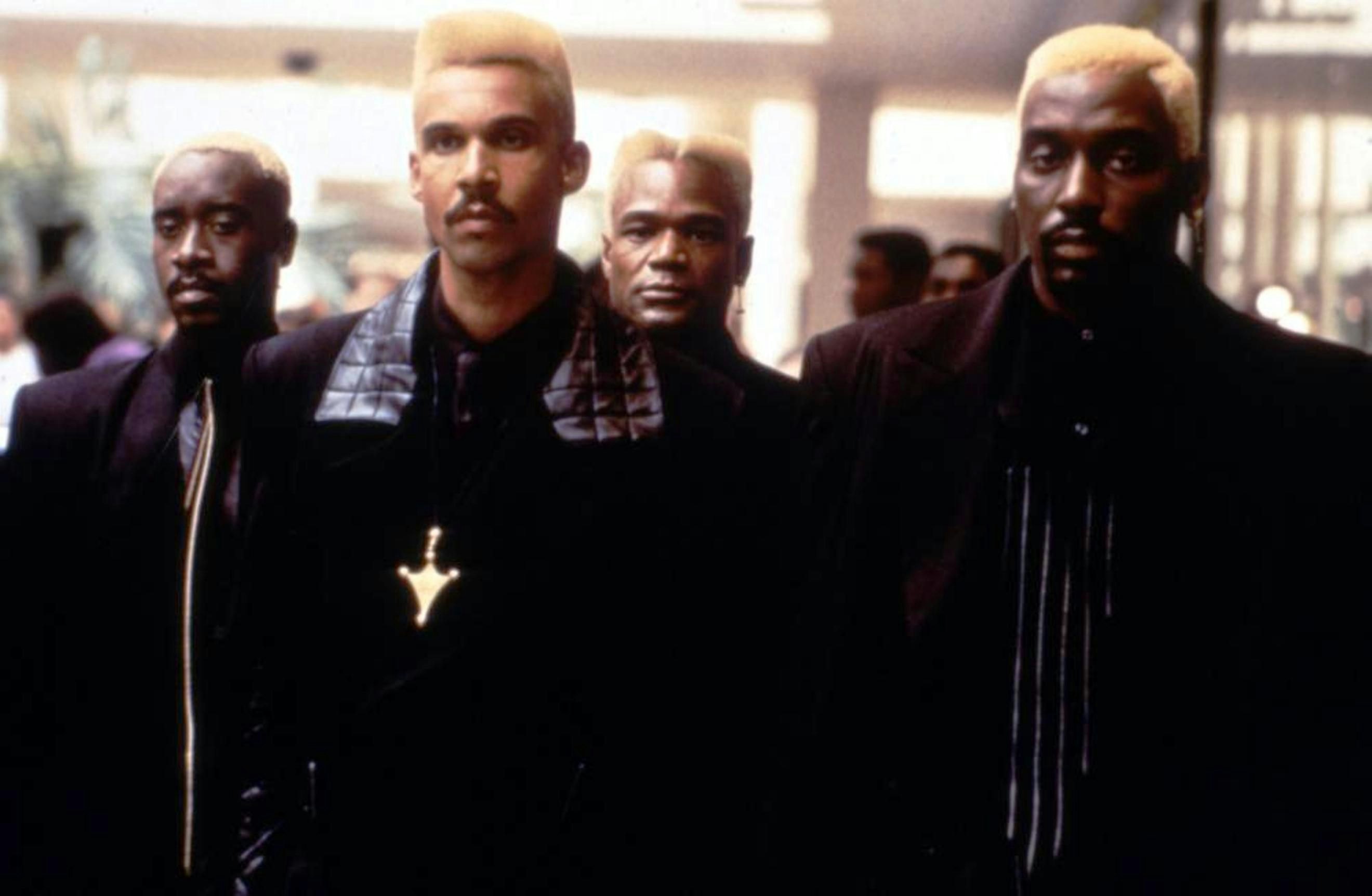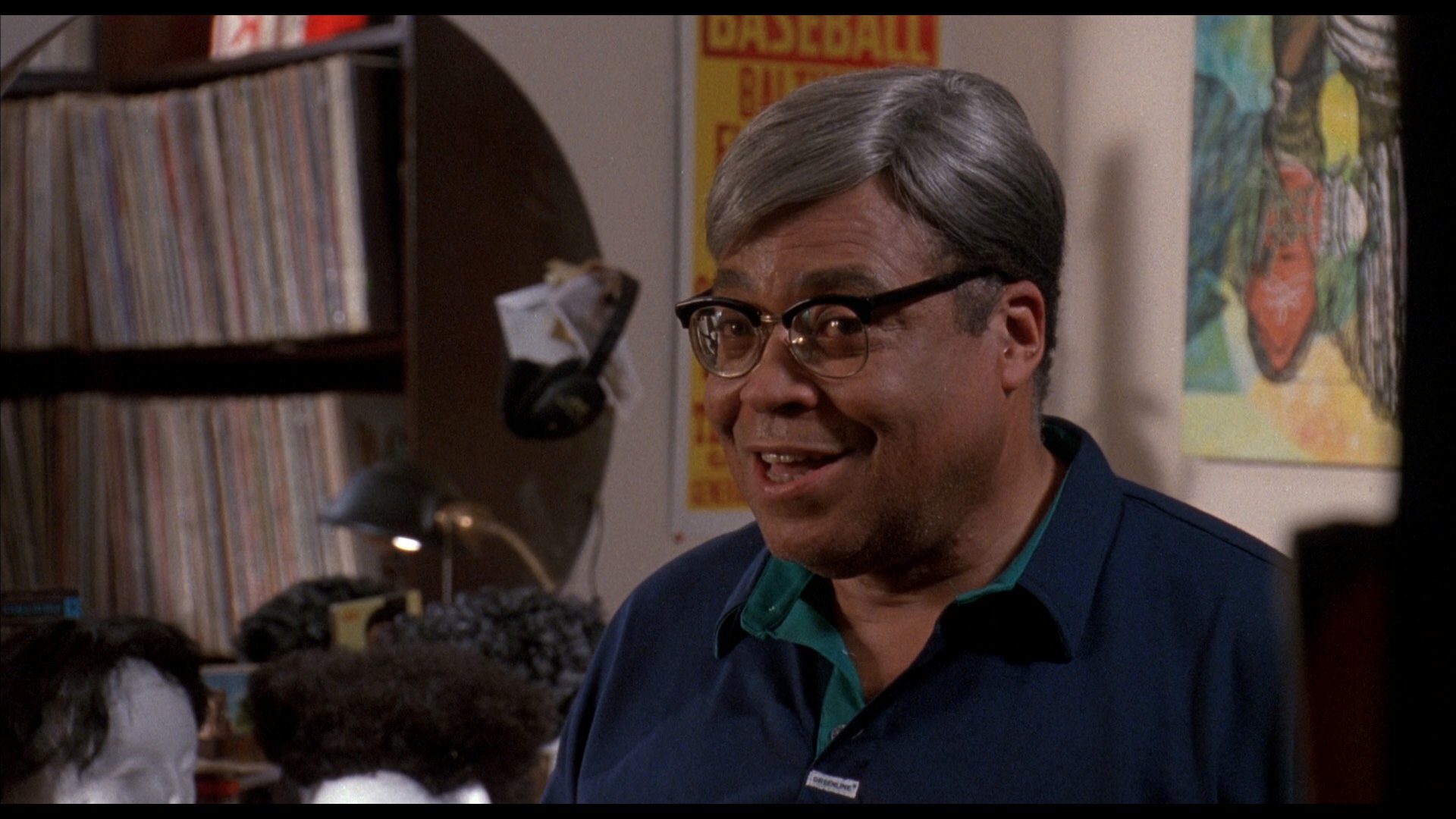
Having grossed $1.3 billion worldwide, picked up three Academy Awards and, despite the death of its leading man, spawned a hit sequel and upcoming TV spinoff, 2018’s Black Panther proved once and for all there was an appetite for African American superhero films. But other movies had to walk — or in the case of one 1993 cult classic, fly three feet above the ground — before the Marvel smash hit could run.
The surprisingly star-studded comedy, which celebrates its 30th anniversary on August 6, is often overlooked in the annals of Black superhero lore. It’s not as funny as 1994’s Blankman, as edgy as 1997’s Spawn, or as cool as 1998’s Blade. It’s not even a memorable failure; while it only raked in $8 million on a $30m budget, it didn’t flop as hard as Shaquille O’Neal’s infamous vanity project, Steel. But with all due respect to ‘70s blaxploitation flick Abor: The First Black Superman, The Meteor Man is the true pioneer.
As he later told Shondaland, writer, director, and star Robert Townsend was inspired to create his own radioactive crimefighter after a conversation with his six-year-old nephew. “I was asking him like the uncle, ‘What are you going to be for Halloween? Spider-Man? Batman? Superman?’ He [said to me], ‘I can’t be them because they’re white.’ That was the first time I was like, ‘What?’”
Most Hollywood executives weren’t concerned with, or willing to change, this lack of representation. Townsend, who’d previously drawn upon his difficult experiences as a Black actor in industry satire Hollywood Shuffle, was rejected by almost every major studio on the grounds that audiences wouldn’t accept a person of color as a spandex-clad savior. Luckily, MGM boss Alan Ladd Jr., the man who gave the green light to Star Wars, saw its potential.
Calling upon the glut of celebrities in his phone book, Townsend assembled an Avengers-esque cast that included everyone from sitcom greats (Robert Guillaume and Marla Gibbs) and Oscar nominees (James Earl Jones) to then-emerging talents (Eddie Griffin, Don Cheadle) and a curious list of musicians. Yes, that really is soul-crooner Luther Vandross brandishing a gun in the climactic showdown. And yes, that really is hip-hop legends Cypress Hill and Naughty by Nature doubling up as the Crips and the Bloods. Townsend wasn’t kidding about wanting to “hit every demographic.”

The well-connected star put himself front and center as Jefferson Reed, a mild-mannered Washington, D.C. substitute teacher with a strong aversion to conflict. But the man who “encourages the smaller kids to practice running, hiding and eating their lunch quickly” proves he has a backbone after saving a woman from the clutches of two young street thugs. And it only gets bigger when, after being chased down by their much more imposing superiors, he’s struck by a green, glowing piece of space debris.
The meteorite gives Reed a rather arbitrary range of superpowers, whether it’s communicating with dogs, transforming abandoned parking lots into vegetable fields or, slightly problematically, seeing people stripped down to their underwear. Only a fashion montage set to some early ‘90s house-pop and an unfortunate cameo from Bill Cosby as a mute homeless man who helps save the day ages the film more.
Meteor Man can also fly (although Reed’s fear of heights keeps him below the skyscrapers), survive hundreds of machine gun bullets, and stop speeding vehicles with his bare hands. But in keeping with the film’s low-key approach, it’s the smaller capabilities that best help build Townsend’s fantasy world.
In fact, The Meteor Man may be the most intimate superhero film you’ll ever see. Whether he’s an unassuming everyman or an indestructible vigilante, Reed never leaves his inner-city neighborhood. This isn’t a film about saving the entire planet from a megalomaniac, fantastical force. It’s about a man trying to rid his streets of very real problems – drugs, theft, gang violence – and how a sense of community can be the most effective solution.

And so it’s not the police who bring down the Golden Lords, the multi-generational army of bleached blonde hoodlums with a pet tiger and slinky-obsessive amid their ranks. It’s James Earl Jones’ goofy neighbor using his beloved vinyl records as weapons. It’s Meteor Man’s new-found gung-ho spirit that culminates in a hilarious vogue-off with arch-nemesis Simon (Roy Fegan). And it’s the Crips and the Bloods, now unlikely BFFs following an inspirational “gee, shucks, why can’t we all just get along?” speech.
The latter exemplifies how Townsend, perhaps with his young nephew in mind, tackles weighty issues with broad (and often amusingly simplistic) strokes. But while The Meteor Man’s successors would offer more searing social commentary, several – particularly those on the small screen – would be grounded in similar localized territory. See Netflix’s Luke Cage or Black Lightning, the Arrowverse spinoff which Townsend has guested on and directed.
Townsend would also prove to be ahead of the curve on 2000’s Up, Up and Away, a Disney Channel movie about a family of superheroes released four years before The Incredibles. Both Griffin (Undercover Brother) and Cheadle (Iron Man 2) would go on to fly the flag for Black superheroes too, the latter in the kind of billion-dollar franchise Townsend hoped to spawn. The charmingly naive Meteor Man may have fallen far short, but it still remains a landmark moment in the history of superhero cinema.







